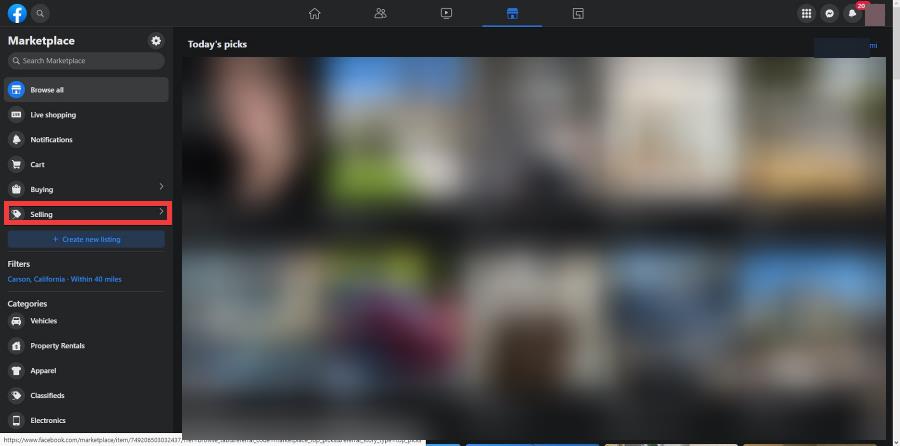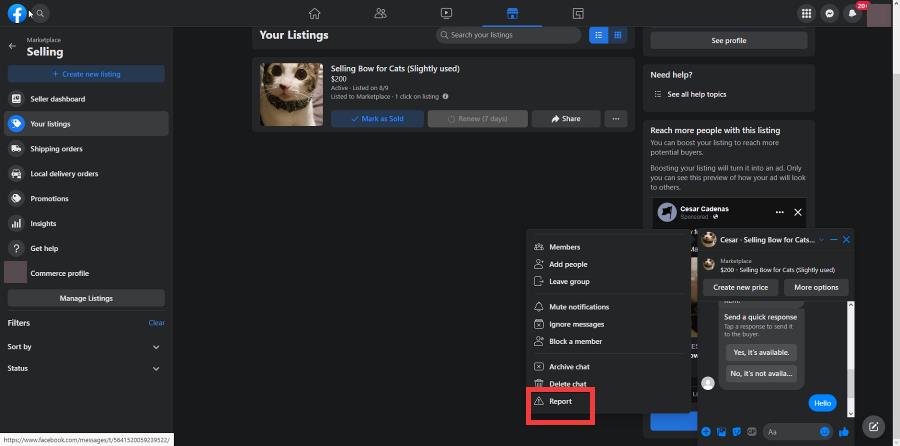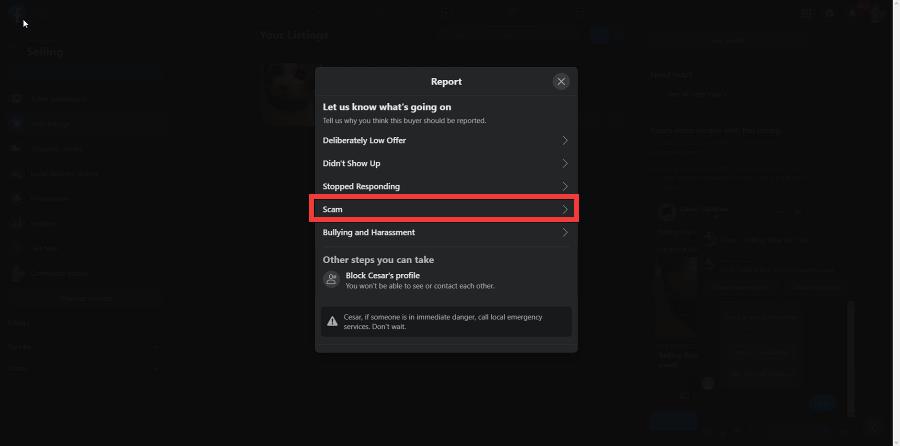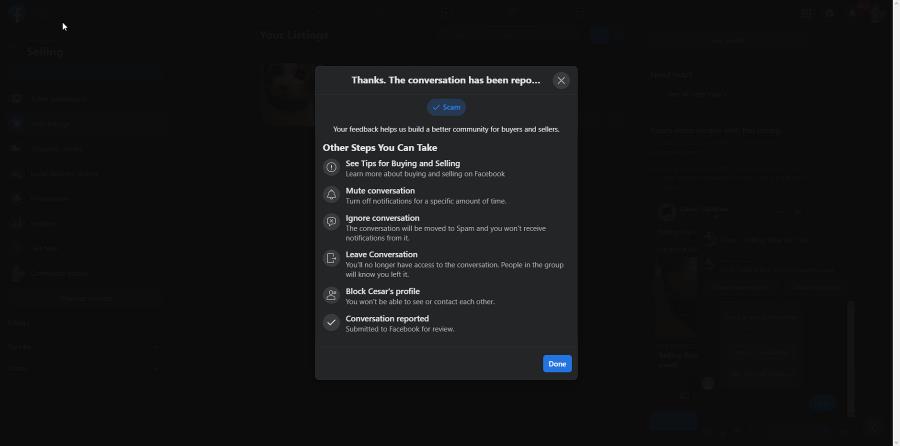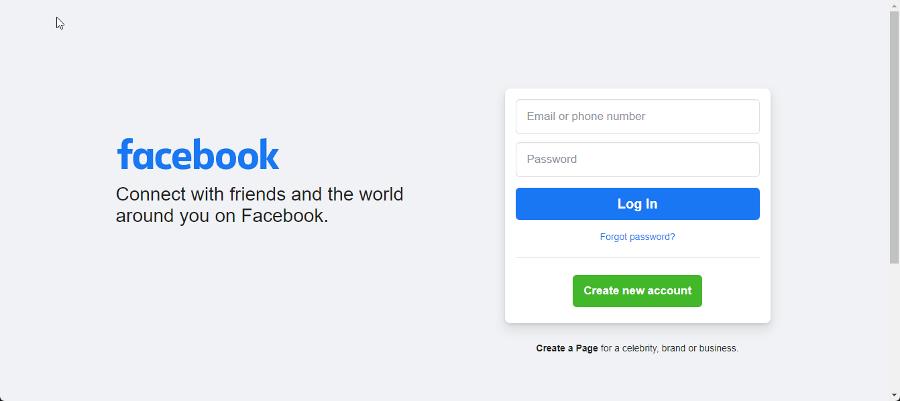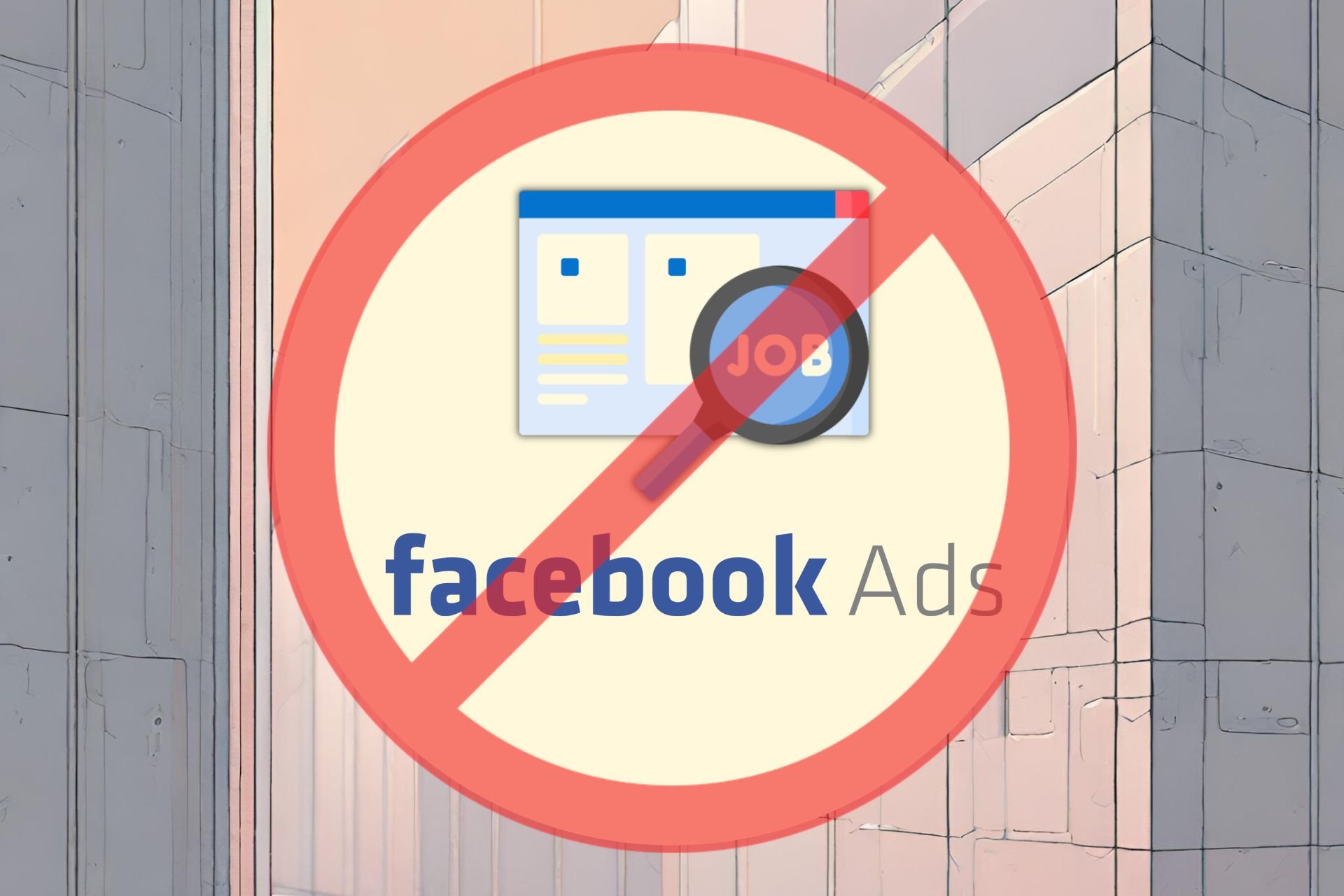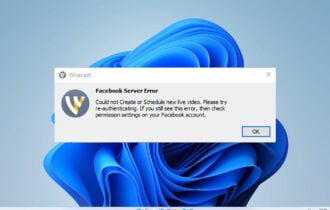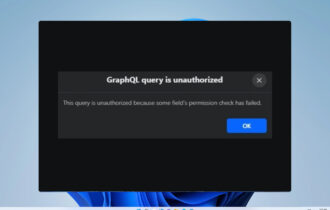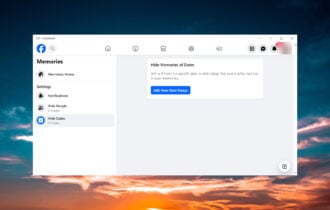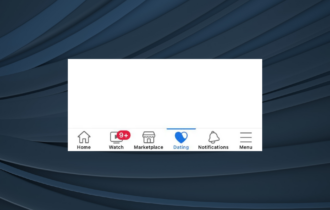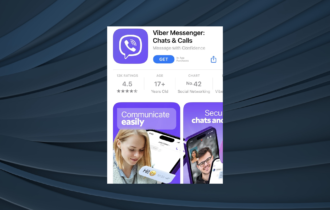Zelle Facebook Scam: What Is It & How to Avoid It
Note that there's no such thing as a Zelle business account
5 min. read
Updated on
Read our disclosure page to find out how can you help Windows Report sustain the editorial team Read more
Key notes
- A nasty Zelle scam has been making its way through Facebook Marketplace.
- It involved tricking people into sending money through Zella to unknown parties.
- This guide will tell you the scam and how to avoid it.
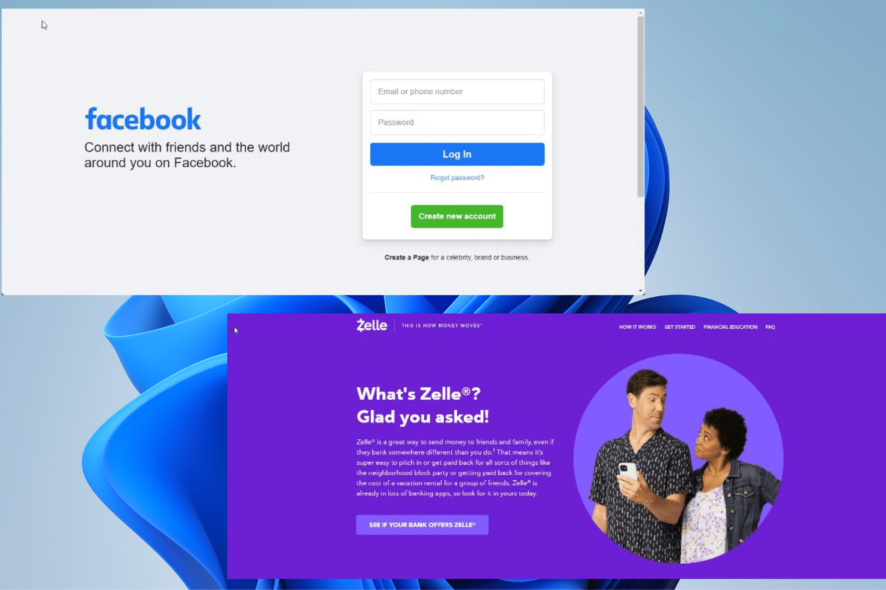
This guide is going to be different than you may be used because instead of teaching you how to do something, we’re going to teach you how to avoid something.
There’s been a particularly bad scam affecting people on the Facebook Marketplace that some have been calling the Zelle Facebook Scam. To be 100 percent clear, Zelle itself is not a scam, but rather how the bad actors are using the app.
Zelle, for those who don’t know, is a financial service that lets people transfer money between bank accounts and to other people. Some use it to pay for products like Venmo and PayPal.
The scam involves tricking people into transferring money to the scammers themselves.
Can you get scammed through Zelle?
Unfortunately, you can. The Better Business Bureau (BBB) from the state of Wisconsin explains in detail how the scam works. The organization even revealed that the scam could work with any kind of payment service apps like CashApp or Venmo. It’s not exclusive to Zelle.
Here’s how the scam works. Say you list an expensive item worth $300 on Facebook Marketplace when suddenly someone purchases said item with a Zelle business account.
There’s no such thing as a Zelle business account. Small businesses can Zelle for transactions, but a subscription fee or special service is not available. The app is free for everyone.
As the seller, you’ll get an email stating that the buyer had to send more money than necessary because they had to pay for the Zelle business account and you have to pay for the service.
If you pay for the Zelle business account, you’ll get the initial payment and more. After the payment for the account, the seller will then ask you to refund the extra money that they sent.
You pay the amount they’re asking and they’re gone. And you learn that the scammer never bought the Marketplace item in the first place.
The Better Business Bureau lists several pieces of advice on how to avoid scams on Facebook Marketplace. We’ll cover those plus some others.
How can I avoid getting scammed on Zelle?
1. Overpayment
The Better Business Bureau cautions people to be suspicious of people willing to exceed the payment you listed unless the item is rare. If someone is quick and eager to send money, it means they’re trying to entice you into paying.
They’re trying to bait you in.
2. Suspicious email
Be sure to check the email being used in the scam. According to the Better Business Bureau, a scam victim revealed one of the email addresses that the scammers used which is [email protected].
A seemingly official-looking email can trick people into thinking it’s from a legitimate place. You should also be wary of emails that have AOL or GMAIL in the sender’s address. Those are definitely scams.

You should also pay attention to the grammar in those emails. Scammers, for whatever reason, typically write emails that have terrible grammar.
3. Learn about Zelle policies
It’s strongly recommended that you read up on Zelle’s policies and how it conducts business. The service has a How It Works page on its website that takes you through its operation.
There’s also a Frequently Asked Questions page where Zella tells you what to do regarding payments with someone you don’t know. We also recommend contacting Zelle’s customer service if you still have questions and don’t know what to do.
There’s even a phone number you can call.
4. Report buyers on Facebook Marketplace
- On Facebook, click Marketplace on the left-hand side.
- In Marketplace, click Selling on the left-hand side.
- In Selling, click the Messenger bubble in the bottom right corner to bring up the discussion with the scammer.
- Click the Chat Settings at the top of the Messenger window.
- Scroll down in the new context menu and select Report.
- In the Report window that appears, click Scam.
- A message will appear telling you that the conversation has been reported successfully and you get suggestions on what else you can do.
Is it safe to accept Zelle from strangers?
Not from strangers, no. Zelle is totally safe so long as you know the other person and you trust them. The app does not have any sort of fraud protection for authorized transactions and is as safe as your bank.
If you have any issues, it would be best to contact your bank for help. Zelle was built by the major banks and is great at protecting people from hackers getting access to your data.
That’s why Zelle has never really had a massive hacking scandal. But that doesn’t people can’t be tricked into coughing up those details or money.
Meta Pay vs Zelle
Meta Pay, formally known as Facebook Pay, is the social media platform’s own open payment service. For Facebook Marketplace, it’s safer to use Meta Pay instead.
Meta Pay is covered by the platform Purchase Protection Policies. You can file a claim to Facebook, let me know what happened, and see if the company is willing to reimburse you. The protection does skew towards the customer more, but it never hurts to ask.
There is a set of instructions in Facebook’s Help Center detailing how to contact the platform if something goes wrong. Zelle is great for a speedy transaction, but you should know the other person.
Otherwise, stick with something more secure like Meta Pay or even Venmo.
Feel free to leave a comment below if you have any questions on other apps or if you have some that you recommend. Also, feel free to leave comments about guides you’d like to see or information on other web browsers.




